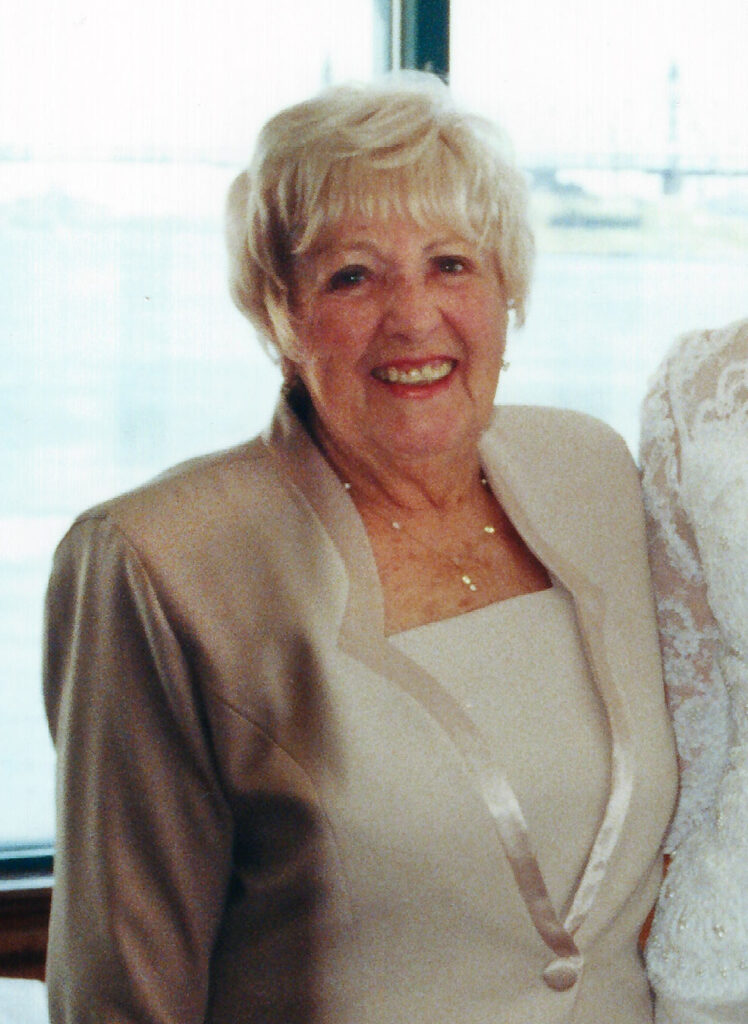A Passing Thought

Grandma Jeanne, my mother’s mother, was a strong woman. She inherited the title of family matriarch when her own mother died in 1975, and held onto that position for more than 25 years. Well into her late 80s, she was still doing her own grocery shopping and participating weekly in a bowling league. She prided herself on her youthful appearance and manner. (When my family threw her a big 85th birthday party, we were surprised that Joe, the man she was dating at the time, wasn’t there. When we asked why, she said, “I didn’t invite him. He thinks I’m 60!”)
She was one of seven siblings, every one of whom had as strong a personality as Grandma. In the end, only three of them remained — Grandma and her two younger sisters — and none of them was speaking to the others. She and my mother had a difficult relationship as well, but when Grandma, at age 90, decided to abandon treatment for colon cancer and go home to die, it was my mother who cared for her.
At that time, Grandma lived alone in an apartment in Fort Lauderdale. My mom lived with her second husband, Eddy, in a house in Boynton Beach. (It was an unwritten rule in that era that when Jewish New Yorkers retired, they would move to South Florida.) It took an hour each way for my mom to drive to and from Grandma’s place, but she did it just about every day. A Jamaican home health aide — whose name, alas, I don’t remember — stayed with Grandma the rest of the time.
When I heard that Grandma was on her deathbed, I flew from California to Florida to support my mother. By the time I got there, Grandma had lapsed into unconsciousness, so there wasn’t much I could do to support Grandma. When I got my first glimpse of her, she was propped up in a hospital-style bed, bald except for a few wisps of gray hair, with her mouth hanging open as she noisily struggled to breathe. She would not have liked me to see her that way.
The home health aide said, “You can talk to her. She’ll hear what you’re saying.” But as someone who barely knows what to say in ordinary situations, I certainly didn’t know what to say in this one. I put my hands on Grandma and meditated, hoping that I could pass on some healing energy to reduce her pain.
Now, this is the part that I can’t account for: My mother had to go out for some reason, and I really don’t remember why. But she did, leaving me alone with Grandma and the health aide. I sat at Grandma’s side, hoping that she’d hold on awhile longer. Every once in a while, she’d let out a moan, and I’d look helplessly at the health aide. The aide would get up from her chair across the room, feel Grandma’s feet, say, “No, it’s not time yet,” and go back to her reading.
But eventually, the inevitable happened. Grandma made a noise different from the ones before. The health aide got up, looked at her, felt her feet, and said, “OK, now it’s time.” She lifted the blanket and sheet off of Grandma and snapped the sheet in the air, the way one does when one is making a bed. Grandma let out one more sound — sort of a cross between a fearful groan and a wistful sigh — and then, in an instant, became still.
I had never seen anyone die before.
The health aide, having finished her work, packed up and left. Now it was just Grandma and me. The stillness was intense. I stared at Grandma’s body, still in the same position it was in when she let out that final groan. I tried to connect this shell with the Grandma I had cuddled with as a child, whose cooking I had always loved, whose sharp comments had alternately made me laugh and cringe. I left the room to get some air, came back a few minutes later, and found the scene absolutely unchanged, seemingly down to the last molecule. There was something magical about it, as if real life had suddenly transmuted into an exhibit in a wax museum.
Eventually my mother came back. She made some calls. Two men came in, wrapped Grandma in a blanket, strapped her to a board, and awkwardly tried to maneuver her through the small apartment and down the stairs. That magical, frozen stillness vanished, replaced by a vast emptiness. This was no longer Grandma’s apartment. It was just… an apartment.
Death is something we often hear about but rarely see. Other members of my family have died, but I was not at their side at the time. I am grateful that I had that opportunity with Grandma. From that day on, death was no longer something huge, abstract, and fearsome. It was just a physical thing that happens. The home health aide, whose reassuring presence I’ll always remember, knew this. “It’s not time yet…. OK, now it’s time.” It was really just that simple.
As I write this, nearly three million people have died of COVID-19 worldwide. Like Grandma, each one of them left a huge emptiness behind. But because of quarantine requirements, most of them had no family member by their side — someone who could have learned and benefited from witnessing their passing. That makes their deaths feel doubly sad.
I love knowing more about your family and your wonderful grandmother. I think it was a real gift for both of you that you were present when she died and I’m grateful that you brought us into the room with your writing.
Thank you for sharing this so tenderly. You’ve given me something I don’t have a name for.